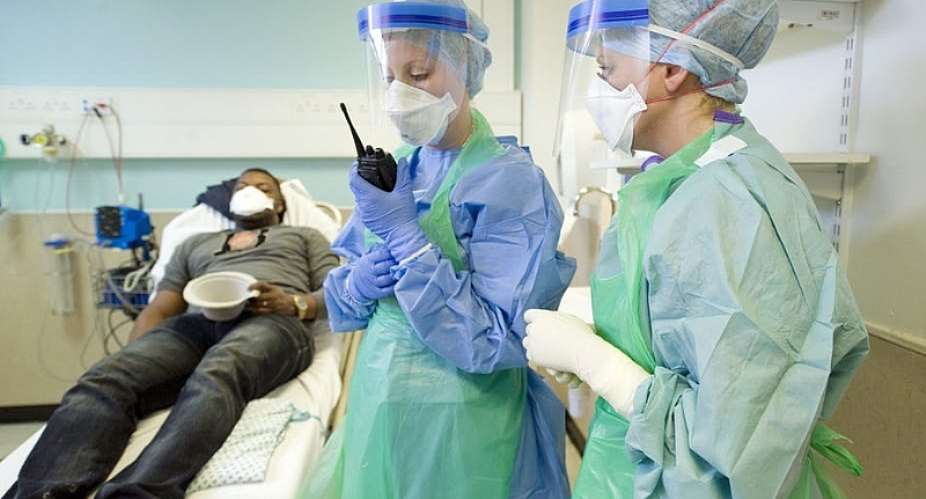The Deputy Secretary-General hosted on Friday, May 1st, 2020, a roundtable on different aspects related to debt vulnerability and COVID-19, with over 20 policymakers, thought leaders, and experts from around the world. This note outlines some of the key messages expressed at the meeting.
The COVID-19 pandemic and the social and economic crises it has already triggered will derail our chances to achieve the 2030 Agenda for Sustainable Development – unless we respond rapidly, with new tools that enable a comprehensive global response, and build back better. In 2020 we expect to lose the equivalent of more than 300 million jobs; a decline in global trade between 13 and 32 per cent; remittance flows to low‐ and middle‐income countries to drop by around 20 per cent; and foreign direct investment to decline by 35 per cent.
In this context, the first segment of the discussion was around options to support middle-income countries in this global crisis, based on their vulnerability. Middle-income countries, representing more than one third of global GDP, home to 75 per cent of the world's population and 62 per cent of the world's poor, are highly vulnerable to a debt crisis, lost market access and capital outflows. While it is not possible to know the depth and duration of the COVID-19 global pandemic and the economic crisis associated with its march across the globe, complacency could be very costly. It is important to consider preventive avenues and set up communication mechanisms between debtors and creditors to avoid a wave of disorderly defaults.
The second segment of the conversation considered private sector engagement in creating solutions. The proposed debt standstill for low-income countries was welcomed and the importance of expediting it was underscored. However, it is insufficient. The Secretary-General has called for a debt standstill across all developing countries affected by debt vulnerabilities. This includes external public and commercial debt. The private sector's voluntary and well-coordinated engagement in debt relief discussions is crucial.
The third segment was devoted to the Bretton Woods institutions and other international financial institutions (IFIs). Their swift actions to support member countries was commended. Greater resources for the IMF are needed, including through the issuance and leverage of Special Drawing Rights. Enhanced support for the World Bank Group, Regional Development Banks, and other IFIs and bilateral mechanisms was also underscored.
Furthermore, IFIs should work together as one system to protect and prevent further financial distress in developing economies at large. Conditionalities, if any, should be directed to ensuring that resources liberated are focused on emergency health and socio-economic recovery efforts.
Short term measures should be linked to a mid-term strategy to recover better. Investment for growth and sustainability should be the objective as without it there will be no debt sustainability.





 Whoever participated in the plunder of the state must be held accountable – Jane...
Whoever participated in the plunder of the state must be held accountable – Jane...
 A vote for John and Jane is a vote to pull Ghana from the precipice of destructi...
A vote for John and Jane is a vote to pull Ghana from the precipice of destructi...
 I’ll repay your abiding confidence with loyalty, understanding and a devotion to...
I’ll repay your abiding confidence with loyalty, understanding and a devotion to...
 ‘I’ve learnt deeply useful lessons for the future' — Serwaa Amihere breaks silen...
‘I’ve learnt deeply useful lessons for the future' — Serwaa Amihere breaks silen...
 I’m sorry for the embarrassment – Serwaa Amihere apologises for leaked sex video
I’m sorry for the embarrassment – Serwaa Amihere apologises for leaked sex video
 Dumsor: Matthew Opoku Prempeh not in charge of Energy sector – Minority
Dumsor: Matthew Opoku Prempeh not in charge of Energy sector – Minority
 Adu Boahen’s murder: Police arrest house help who was in possession of deceased’...
Adu Boahen’s murder: Police arrest house help who was in possession of deceased’...
 Akufo-Addo nominates Felicia Attipoe as Tema West MCE
Akufo-Addo nominates Felicia Attipoe as Tema West MCE
 Election 2024: I can't have someone I defeated twice as my successor – Akufo-Add...
Election 2024: I can't have someone I defeated twice as my successor – Akufo-Add...
